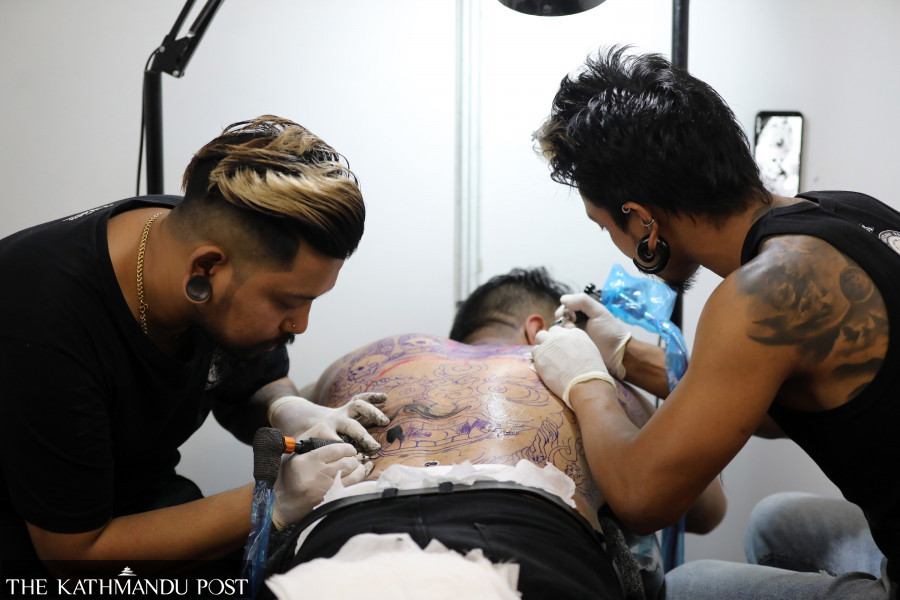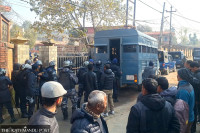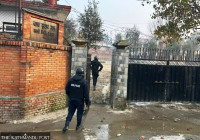Valley
Still shuttered, Thamel tattoo parlours feel left out by government
The continued ban on their business has left tattoo artists worried as they are struggling even to pay the rent for their shops, the majority of which are located at famous tourist areas like Thamel, where rents are expensive.
Shuvam Dhungana
With Covid-19 cases declining in the Kathmandu Valley, the administrations of the three districts of the Valley have eased the lockdown allowing most businesses to reopen and more vehicles to ply the streets. However, for the tattoo and piercing industry, the closure has no end in sight.
According to the notice published by the District Administration Office, Kathmandu, jewellery shops, electronics stores and automobile shops are allowed to open on Sundays, Tuesdays and Thursdays. Similarly, shopping malls, clothing stores, gift shops, sports apparel stores and cosmetics shops are allowed to operate on Mondays, Tuesdays and Fridays.
Uma Kanta Adhikari, the assistant chief district officer of Kathmandu said along with tattoo parlours they have not allowed beauty parlours, barber shops, and gyms to reopen due to infection risks.
“We will reopen such businesses only after getting recommendation from the CCMC [Covid-19 Crisis Management Centre], otherwise there is no plan,” Adhikari told the Post.
The continued ban on their business has left tattoo artists worried as they are struggling even to pay the rent for their shops, the majority of which are located at famous tourist areas like Thamel, where rents are expensive.
Sagar, who has been running a tattoo and piercing shop for the past several years at Thamel, said the pandemic has badly impacted his business.
“Before the lockdown imposed on March 24 last year, every day at least four tourists and a few Nepalis used to visit our shop to get tattoos or for piercings,” said Sagar who wished to be identified by only his first name.
“During the first lockdown despite our shops being closed, we had to pay 50 percent of the rent,” said Sagar.
According to Sagar, in Thamel shops and businesses are required to pay the rent of six months to a year in advance. “Many of us had already paid full rent for either six months or a year so the closure due to the prohibitory orders have caused us huge losses,” Sagar told the Post over the phone.
Sumina Shrestha, 26, another tattoo artist, who is in the business for over five and a half years, had a similar experience.
“Before the pandemic struck, our studio used to see clients from around the world. However, nowadays there are no tourists but still we receive queries about tattoo prices and designs from many Nepalis. They want to know our reopening date. But we don’t know how long we will have to suffer like this.” said Shrestha.
According to Sumina, as the government has allowed other businesses to run, tattoo parlours too should be allowed to reopen by following health safety protocols.
“I feel like it's a slap in our face. As other businesses were given permission to reopen they have continued the ban on tattoo parlours,”Sagar told the Post.
The daily Covid-19 cases have been coming down after peaking on May 11 when the country confirmed a record 9,317 new infections. On April 29, when the prohibitory orders were imposed in the Valley, 4,831 cases had been reported countrywide.
The Kathmandu Valley recorded 335 new infections in the past 24 hours. Of these, 234 cases were confirmed in Kathmandu, 68 in Lalitpur and 33 in Bhaktapur.
Both Sumina and Sagar think tattoo parlours should be allowed to reopen as they work in a sanitised environment by following all health safety protocols. “Working in a tattoo parlour is like working in a clinic as it is very clean and sanitised. And we work on an individual appointment basis so there is no crowding.”




 15.12°C Kathmandu
15.12°C Kathmandu











